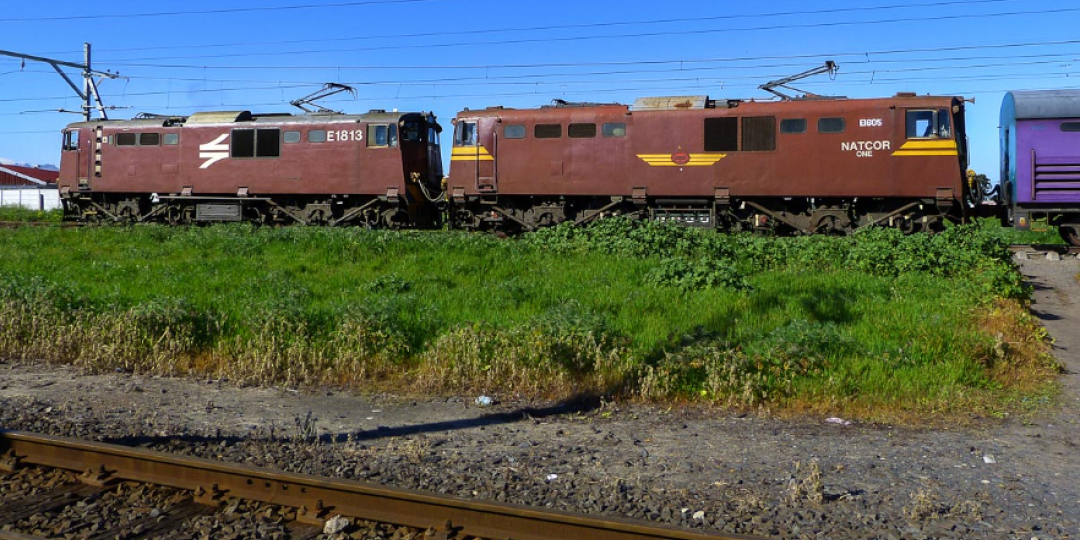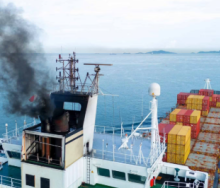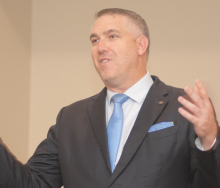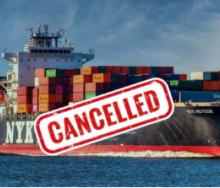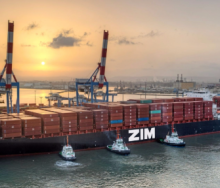South Africa’s most important lifeline linking the Port of Durban with the industrial heartland of Gauteng appears to be as close as it has ever been to collapse under the weight of rampant cable theft and sabotage by criminal syndicates.
What’s more, the country’s logistics utility, Transnet, has publicly admitted that it has its back against the wall, incapable of holding back the wholesale threat against its infrastructure.
This morning on national radio, Rudzani Ligege, managing executive at Transnet Freight Rail (TFR), made no secret of how desperate the current situation is.
To meet manufacturing demand and keep supplies flowing on the National Corridor Line (NCL) between the port and Gauteng, responsible for about 40% of South Africa’s GDP, TFR needs about 47 trains running daily on the “NatCor Line”.
But a significant spike in cable theft and the wanton cutting of electrical wire without removing it, on a line some 740 kilometres long, means TFR can only manage about 15 trains every 24 hours – and that’s a good day.
Asked by Bongani Bingwa on 702 how bad it is when it’s really bad, Ligege said some days TFR could barely manage five trains or about 10.6% of the NCL’s required capacity.
Generally speaking, TFR runs 15 trains daily.
Whereas a train ordinarily took 18 hours to complete the journey, it took up to 36 hours these days, he said.
Last year about 523kms of cable were ripped up and carted off on the NatCor Line. At the end of May, Bloomberg reported that by the end of the fiscal year on March 31, this figure had increased to 591kms or 79.8% of the entire length of the line.
A major part of the problem is that TFR simply doesn’t have the resources to protect its assets, Bingwa was told.
Ligege said the parastatal couldn’t secure each section of a line that ran through remote areas, especially where it made its way through the northern Free State.
Response time to disrupted services was often slowed by physical challenges, such as the various tunnels through which the line runs, he added.
The Criminal Matters Amendment Bill, intended to curb the destruction of crucial infrastructure, also doesn’t help much when the SA Police Service is also under-resourced, while the judicial system is too slow.
“We need help,” Ligege said. “As a result, we simply cannot run the line like we’re supposed to.”
What’s it going to take?
Specialised intervention on three fronts, he said – a dedicated force to combat crime, courts to fast-track prosecution, and investigators looking into syndicate activity.
Ligege said that although the mushrooming of informal settlements along the NCL contributed to criminal activity, sinister forces were at play.
“There are cases where the cable is cut, making it difficult to get to the bottom of it. We need more investigations to get to the syndicates. It is our view that it is organised and not just petty crime.”
As for potential private-sector involvement, Ligege said it would have to be the right partner, preferably with technical capability, as TFR simply didn’t have the budget or the means to do what was required to save the NatCor Line.
